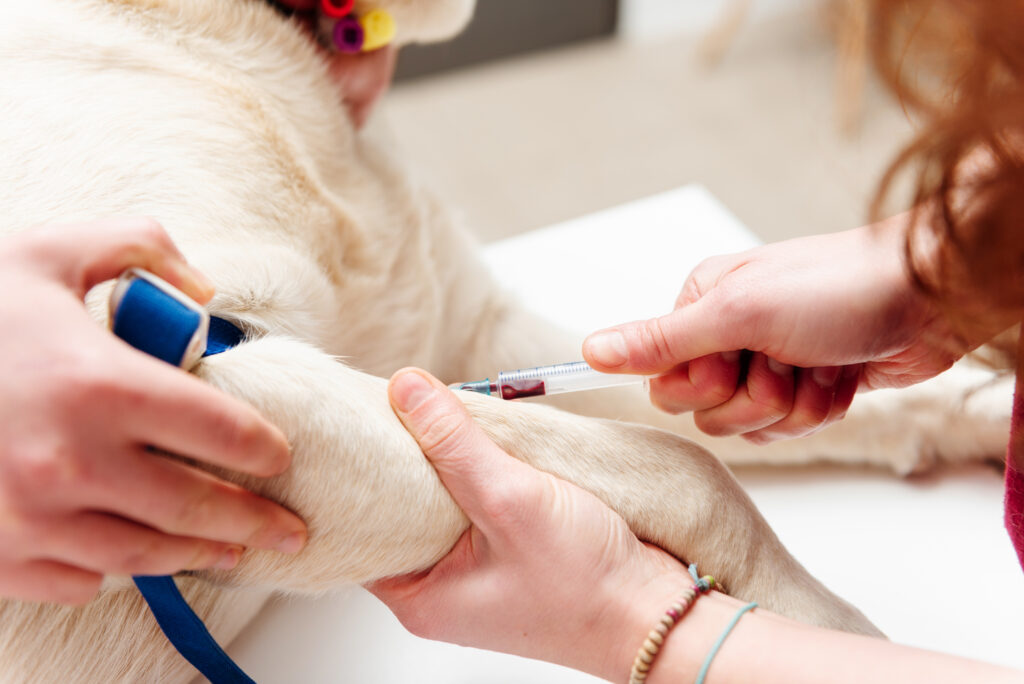Easter food safety: Tips to keep your pets safe this holiday
Find out why chocolate eggs and hot cross buns pose risks to cats and dogs, and learn how to keep them safe.
Read more3 October 2024
Allergies don’t just affect humans—our furry friends can suffer too. Cats and dogs are susceptible to a variety of allergies, ranging from environmental irritants to food sensitivities. As a pet owner, understanding the signs of allergies and how to manage them is key to keeping your pet healthy and happy. In this blog, we’ll explore the common causes of allergies in cats and dogs, how to identify symptoms, and effective treatment options.
Just like people, pets can be allergic to environmental factors such as pollen, dust mites, mould spores, and grass. Seasonal allergies are common, especially during spring and summer when pollen levels are high.
Food allergies or intolerances occur when your pet’s immune system reacts to certain proteins in their diet. Common culprits include beef, chicken, dairy, wheat, and soy. Cats and dogs with food allergies may experience digestive issues or skin problems.
Flea bites can trigger intense allergic reactions in pets. In some cases, just one flea bite can cause severe itching and skin irritation that lasts for days. This condition is known as flea allergy dermatitis (FAD).
Contact allergies occur when your pet’s skin comes into contact with certain substances, such as cleaning products, certain plants, or even certain types of bedding. This can cause localized itching and irritation.
Recognizing the symptoms of allergies in pets is essential for early diagnosis and treatment. Symptoms may vary depending on the type of allergy, but common signs include:
If you suspect your pet has allergies, it’s important to consult your veterinarian for a proper diagnosis. They may conduct several tests, including:

Once your pet’s allergy triggers are identified, managing their symptoms becomes much easier. Here are some common treatment options:
Your vet may prescribe Antihistamines, corticosteroids, or allergy injections to help manage allergic reactions and relieve itching. For food allergies, prescription diets or novel protein diets may be recommended.
Keeping your pet on year-round flea prevention is crucial, especially if they suffer from flea allergy dermatitis. Flea control treatments such as topical or oral medications can help keep these pests at bay.
Regular bathing with hypoallergenic or medicated shampoos can soothe your pet’s skin and reduce itching. Grooming also helps remove allergens from their coat.
If your pet has environmental allergies, limiting exposure to allergens can make a big difference. Keep windows closed during high pollen seasons, vacuum frequently to reduce dust mites, and wash your pet’s bedding regularly.
Switching to a limited-ingredient or prescription diet can help alleviate symptoms for pets with food allergies. Always consult your vet before making dietary changes to ensure your pet receives the necessary nutrients.
Allergies can be frustrating for pets and their owners, but your pet can lead a happy and comfortable life with the right care. Watch for any unusual symptoms, and work closely with your vet to develop an allergy management plan tailored to your pet’s needs. Minimizing exposure to allergens and providing appropriate treatments can help reduce your pet’s discomfort and keep it healthy.
If you suspect your cat or dog is suffering from allergies, don’t wait—consult your veterinarian today to ensure your pet gets the relief it needs.